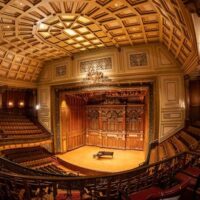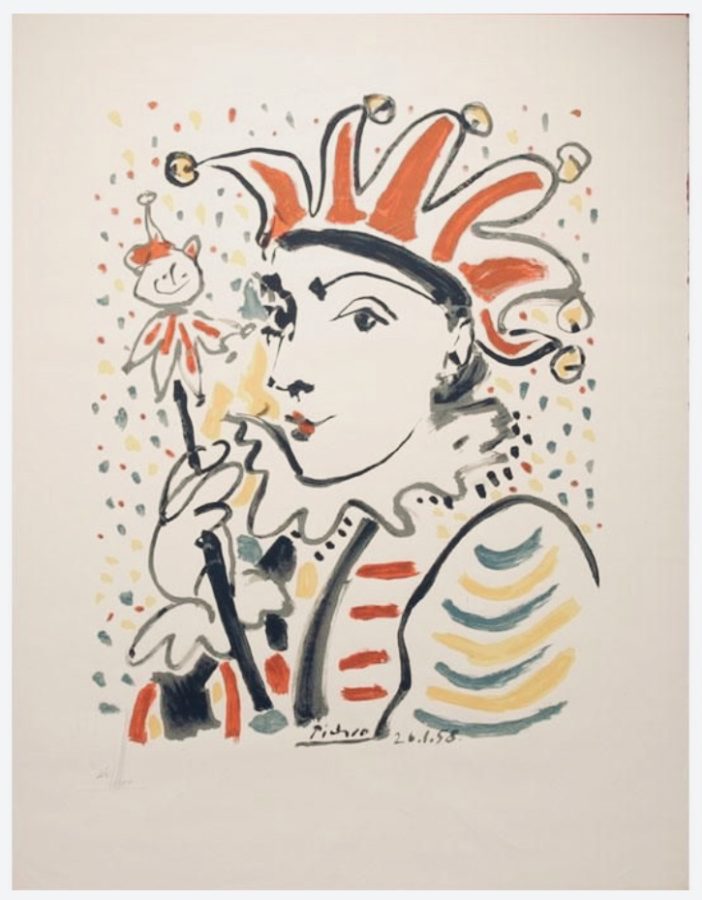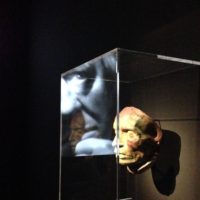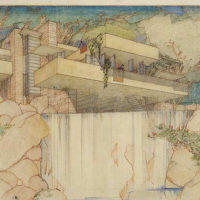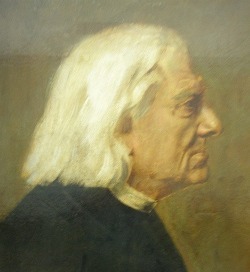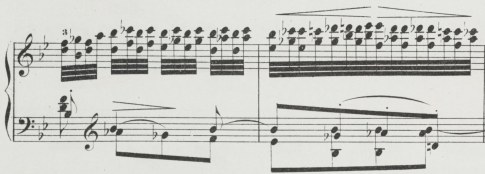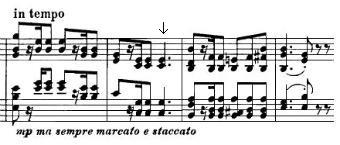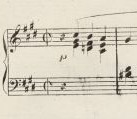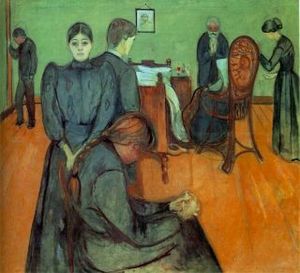At a memorial event in Jordan Hall in Boston on September 29, 2024, these were my remarks: This concert hall, this space, the vibrating air in here, the music that’s been heard, those sounds. The piano playing done on this stage... In 1907, Ferruccio Busoni played the piano right about ... here. Arthur … [Read more...]
“I have cap and bells”
After a prospective student played Maurice Ravel's "Alborada del gracioso," I asked the not-so-simple question: "What's the melody? Ravel: "Alborada del gracioso," (1905) from Miroirs The student did not have a ready answer; after a moment suggesting the opening melody might be the music played by the pianist's left hand: It seems to me that "Alborada" utilizes the technique (seen in Franz Liszt's piano music) of dividing a musical line between … [Read more...]
Piano Sonata as Video Game: Anomalies in My Reception of Beethoven’s Music
A transcript of my spoken remarks at Boston University last week, as part of a symposium on piano sonatas by Beethoven. “I’d like to talk about what I would call anomalies in my own reception of Beethoven’s piano sonatas. “I can certainly remember -- as I’m sure many of you can remember -- a time when I first played through a piano sonata by Beethoven from beginning to end, in a kind of performance. It was in my living room, I think I was … [Read more...]
Conflict of Interest
The character of a piece of music is strongly influenced (or sometimes distorted) by the technique necessary to play it. The physical motions of fingers and arm will color the music being made. There is always an interaction between a musical idea (perhaps written) and the movements of a human body that are necessary to realize the idea in sound. Delicate or fragile music that requires advanced virtuosity is especially challenging. As is any … [Read more...]
Wunderlicher Alter
If teachers of classical music transmit the past, then perhaps older teachers have more direct connection to traditions further away in time. But the culture of the conservatory has changed: the oldest musicians were highly venerated teachers, now they may not be. In old age, some musicians were in great demand as teachers: Rosina Lhevinne, Sascha Gorodnitzki, Ivan Galamian, Joseph Gingold -- and Liszt! In traditional conservatory culture, … [Read more...]
No fervor
Hearing Liszt's "Feux follets" at Alice Tully Hall -- it crossed my mind that it was the most accomplished performance of the étude ever played! This solo recital was won by the pianist as part of a competition prize. Tully Hall was mostly empty. No critics and no bloggers were there to document this considerable piano-playing achievement. And that makes sense -- it wasn't "news." It may be puzzling that today's highly accomplished, … [Read more...]
Stay Down
Playing for me in a recent masterclass, a pianist performed Liszt's etude "Wild Hunt." At the end of two measures of melody (m. 60), he raised his wrists immediately after playing the last note in the bar, releasing his fingers from the keys -- although the notated duration of this sound is the longest in the line. The piano is a device that never came with a set of instructions. In a sense, musicians are always making how-to guides. And … [Read more...]
Scoreless
Just before playing a program that began with Chopin's Opus 45 Prelude, I started to think through the beginning of the music. Backstage in the green room, I had no piano and no copy of the written score -- and I couldn't recall the spacing, the exact arrangement of the notes, of the first chords in the piece. Solo pianists who play a lot of music by memory tend to be concerned about forgetting. For many pianists, it's the main focus of … [Read more...]
Life and Death
In a seminar, I ask each of a group of young pianists to talk very briefly about a piece they know -- as they might speak to an audience before performing. I urge them to be pithy, personal, compelling. I don't like the "Beethoven-was-born-in-1770 approach," I tell them. Music is important. It engages with the big questions, I say. One seminar participant asks me to give an example of the sort of commentary I want. So, I say: "Imagine I'm … [Read more...]
Lights up
So there we are in the theater. The lights coming up just a few seconds too soon and making clearly visible two black-clad dressers meant to be offstage before the light arrives. A little glitch in seamless perfection. And then what? Pretend it didn't happen? Hope no one saw them? Or, on the fly, damage the seamlessness even more and send the dressers out again later on in the show? Most big theater productions have trouble with that kind of … [Read more...]

